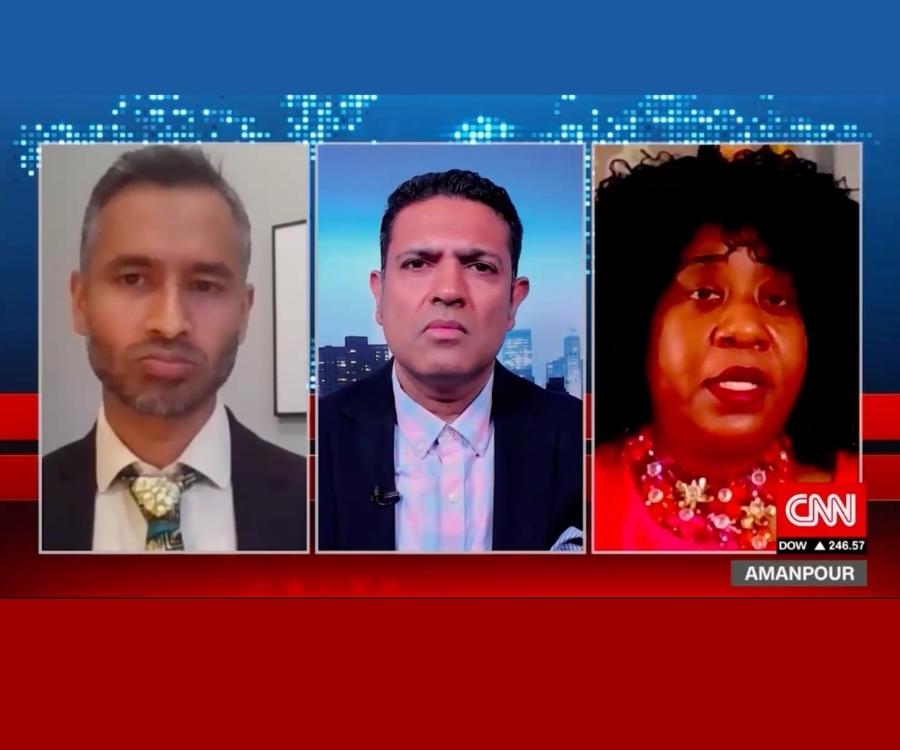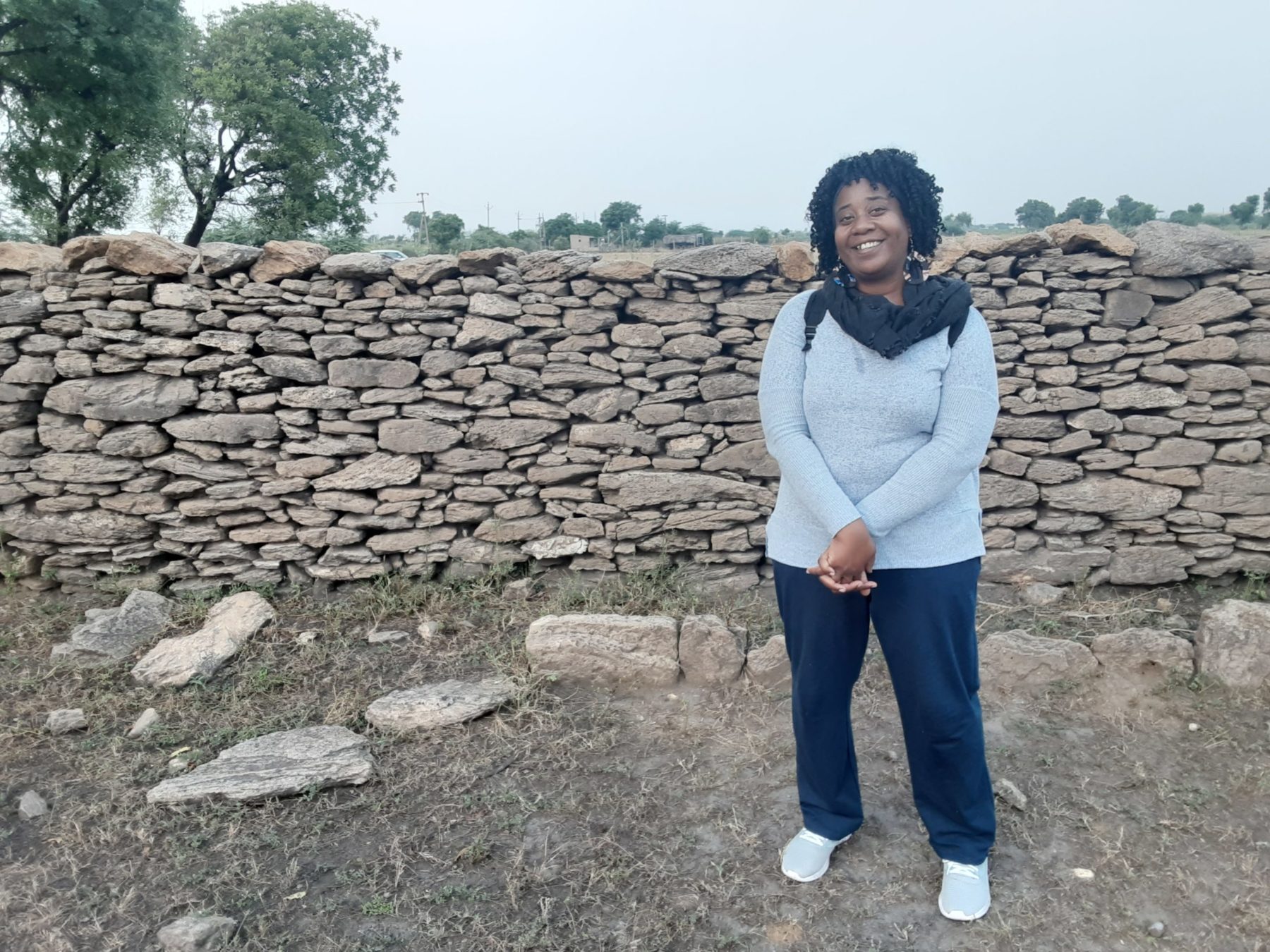Namati’s work in the region began in 2019 with five community paralegals — known locally as environmental justice organizers — in DC and Maryland. These individuals assist impacted communities in navigating complex systems to tackle specific cases of environmental non-compliance, such as air pollution from industrial activity, liquid waste dumped by industrial facilities, and legacy hazardous waste buried underground.
Together, we achieved a number of successes in 2021.
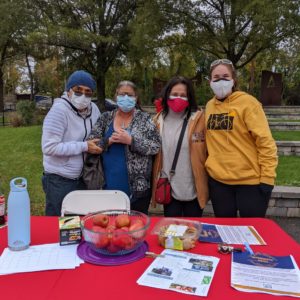
Mid-Atlantic Justice Coalition members man a table at an event in Salisbury, Maryland to speak with local residents about environmental health and economic opportunities.
In DC and Maryland, residents came together, with support from environmental justice organizers, to submit pollution complaints against facilities to environmental regulators. Their intent was to prompt the enforcement of existing permit and regulatory conditions as well as to establish a formal record of negative impacts. In the future, affected communities can then cite these records when contesting permit applications by the same company or of a similar nature.
Their actions led environmental regulators to record over a dozen violations by polluting facilities, which is a pivotal step towards forcing those polluters to come into compliance with the law. They also helped prompt the DC government to begin developing regulations to address disproportionately high air pollution levels in lower-income, majority-Black communities in the city.
Community members also worked together, with environmental justice organizers’ support, to submit detailed testimony during the Comprehensive Plan drafting processes in Washington, DC and Frederick, Maryland. Comprehensive Plans set the framework for development, but generating them is often a technocratic exercise. In their testimony, community members addressed their concerns about environment and health, and their vision for the future of their cities. The input led to stronger provisions in the final versions of both Comprehensive Plans.
This grassroots work against specific violations is vital. But we know we can’t stop there. As Namati teams and partners have done in other countries, we want to build further towards fundamental improvements in the laws and systems that make injustice possible.
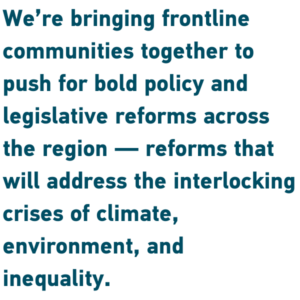 To that end, in 2021 we co-founded the Mid-Atlantic Environmental and Economic Justice Coalition with 30 partner organizations and environmental justice leaders. We’re bringing frontline communities together to push for bold policy and legislative reforms across the region — reforms that will address the interlocking crises of climate, environment, and inequality.
To that end, in 2021 we co-founded the Mid-Atlantic Environmental and Economic Justice Coalition with 30 partner organizations and environmental justice leaders. We’re bringing frontline communities together to push for bold policy and legislative reforms across the region — reforms that will address the interlocking crises of climate, environment, and inequality.
We have helped create new state coalitions in Maryland, Delaware, and DC, and are partnering with the Virginia Environmental Justice Collaborative, an existing alliance in Virginia. These state coalitions are co-led by outstanding grassroots organizations experienced in building community power. The state coalitions developed and are now organizing for the passage of legislation to improve transportation equity, eliminate renewable energy subsidies for toxic trash incineration, and require that at least 40% of investments in green infrastructure and environmental remediation go towards the most impacted communities.
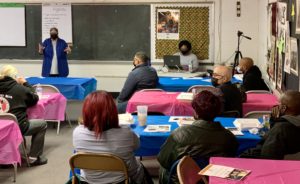
Neighbors share their concerns about contaminated water and degrading health at a Mid-Atlantic Justice Coalition community meeting in Georgetown, Delaware.
We will continue deepening the roots of our coalition across the region in 2022. We’ll increase our organizing in impacted communities; work hand-in-hand with communities to remedy violations; develop an Environmental Justice Academy to train community organizers and residents on relevant law and science to add to their strategic toolbox; and collectively develop a regional policy framework representing a vision for a just and sustainable future, which will guide our efforts going forward.
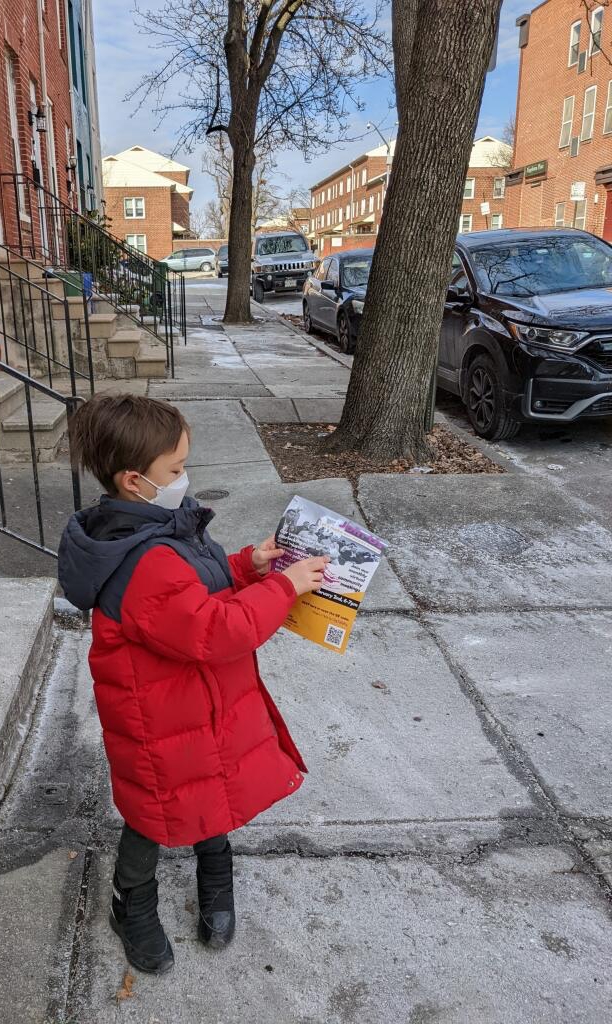
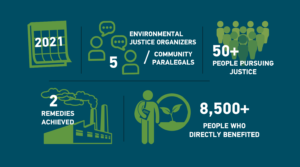

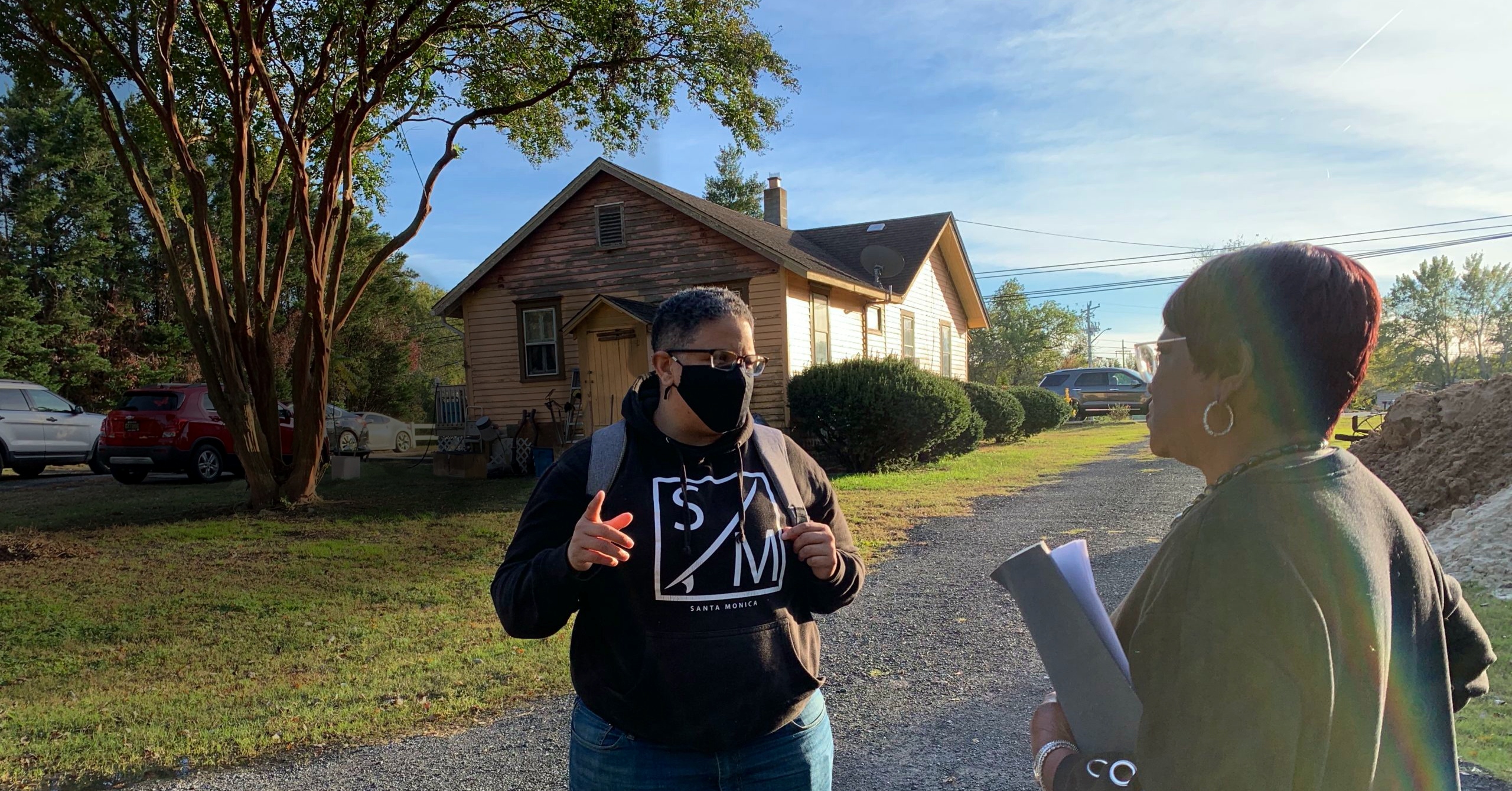

 To that end, in 2021 we co-founded the
To that end, in 2021 we co-founded the 
